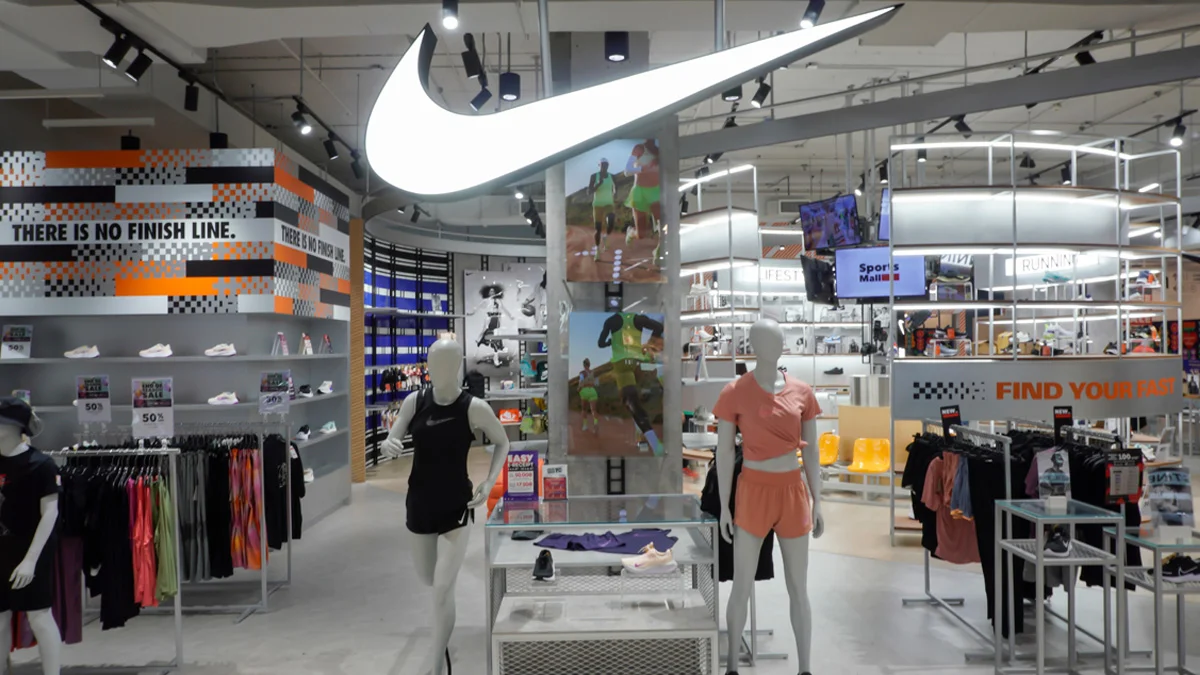
This article is an online version of our Off to Lunch newsletter. Sign up to receive it straight to your inbox here.
Business Agenda
A summary of the most important business news
1. Fears are mounting over the future of London’s AIM, as the number of IPOs hit a post-financial crisis low amid concerns about a potential tax raid from chancellor Rachel Reeves. Just £88.6m was raised through listings on AIM in the past year, with market experts warning that the scrapping of inheritance tax relief could trigger a significant drop in stock value and investor confidence. As the market faces declining numbers and increased competition from the US, industry leaders are calling on the government to provide clarity and protection for AIM’s growth prospects. You can read more here.
2. Despite concerns about AIM, the UK has beaten Europe when it comes to equity market activity. New data from Dealogic has found that UK deals rose 48 per cent in the first nine months of 2024 compared with the same period a year ago. This is in contrast with declines across Europe amid snap elections and pre-election jitters in the US. This marked a strong recovery for the UK, which had previously seen a decline in listings and companies moving abroad. You can read more here.
3. Nike is betting on a renewed focus on “everyday runners” to drive its turnaround after experiencing its steepest quarterly sales decline since the pandemic. The sportswear giant has withdrawn its annual revenue forecast and delayed its investor day as it awaits the return of veteran Elliott Hill as CEO to steer a strategy reset. With competition heating up from rivals like On and Hoka, Nike is looking to regain market share through innovation in running shoes and apparel, hoping to reconnect with amateur runners and stabilise its slipping sales. You can read more here.
4. Private equity firms are using US public sector workers’ retirement savings to fund fossil fuel projects that emit over 1 billion tonnes of greenhouse gases annually. Researchers at Americans for Financial Reform Education Fund, Global Energy Monitor and Private Equity Stakeholder Project assessed the holdings of 21 private equity firms. Since 2010, the firms invested more than $1tn into the energy sector, often in fossil fuel ventures that operate with minimal public scrutiny. You can read more here.
5. Canary Wharf has launched the Eden Dock, a biodiversity project in collaboration with the Eden Project aimed at transforming the banking district into a green urban oasis. The initiative will enhance biodiversity with floating gardens, wildlife habitats and public green spaces, improving the wellbeing of workers and visitors. You can read more here.
Business Question
What percentage of UK workers have admitted to "clock blocking"? This is where they block off time in their calendars to protect it from meetings.
A. 85 per cent
B. 63 per cent
C. 52 per cent
D. 39 per cent
The answer can be found at the bottom of the page.
Business Thinker
Deep dives on business and leadership
?? Interview: Peter Ruis and his mission to make John Lewis ‘radically relevant’
Peter Ruis, the new boss of John Lewis, has spoken to Retail Week about his plan for the department store chain, which has been underperforming. “I think we’ve always been very radically relevant, we’ve always been about talkability from history into the modern day,” Ruis says. “When we bring back around things that we’re doing – engaging with the customers, innovation, investment – we’re at our best. We’ve never been one of those sleepy department stores.”
?Good management is universal, so why does practice differ so much?
If we know what effective management looks like, why are some countries better at it than others? Klement on Investing has looked at this question. The UK scores well on talent management (promoting and developing skilled people) but poorly on implementing lean operations. “So, here is a call to action for managers in UK manufacturing: Check if and how you can introduce lean operation practices to your business to catch up with international competitors or – even better – overtake them.”
??? Would you respond to a heckle with an 11-second pause?
A great video of Steve Jobs responding to a hostile question from the audience with a thoughtful, respectful answer and a long pause. An example of how to respond to –and be aware of – your critics.
Business Quote
Inspiration from leaders
“Management is doing things right; leadership is doing the right things.”
– Peter Drucker
Business Leader
The best of our content

Great British Billion-Pound Businesses
Who founded and built the UK’s billion-pound businesses? In our new Great British Billion-Pound Businesses list, this is the question we answer. The ranking celebrates the founders who have built businesses worth £1bn – and are still involved today.
These are Britain’s entrepreneurial elite. They have built ventures spanning everything from artificial intelligence and virtual reality to hoodies and craft beer. On the list are discount retailers and a diamond dealer, bookmakers and cybersecurity firms.
Created in association with Deutsche Bank Wealth Management, the list tells the story behind the people who built these businesses and what we can learn from them. It includes Ineos founder Sir Jim Ratcliffe, who didn’t even start his chemicals behemoth until his mid-40s; Bet365’s Denise Coates, who built her family’s modest chain of betting shops in the Midlands into a global online gambling giant; and James Dyson, who created 5,127 prototypes of his first bagless vacuum cleaner before he was content.
Some of the businesses have been around for decades, others are much newer. Revolut’s Nikolay Storonsky, is at number three on the list having built a business worth billions in less than 10 years. It already operates in 160 countries and has more than 40 million customers.
Wayve, which is developing the technology to power self-driving cars, was only founded seven years ago. Its co-founder Alex Kendall has built a business worth £2.3bn by harnessing video and data from real life to “teach” autonomous vehicles how to drive using AI.
Why are we shining a spotlight on these founders in particular? Because at Business Leader we believe the UK needs more entrepreneurs with the energy and hunger to keep building. It needs more businesses that employ people by the thousands, not the dozens or hundreds.
The profiles may be of truly exceptional people, but their stories have lessons for businesses of every size. We want to help you grow your business by championing success and helping you learn from failure.
Here are the stories of success. We’ll be spotlighting these people over the following months through podcasts, interviews and events, including the Business Leader Summit in March.
Read the full list here.
Other popular pieces
?? 7 leadership lessons UK business owners can learn from across the pond
?? The pitch from hell (and how to avoid it)
?? How to preserve tacit knowledge
And finally...

Last week, Netflix dropped its highly anticipated documentary on Vince McMahon. The show is the first extensive series focusing on the former WWE executive and is a warts-and-all behind-the-scenes look at some of the company’s biggest moments from the past four decades.
It provides a fascinating insight into disrupting a stale old-school-minded industry. The main theme that comes up time and time again is around listening to your audience; another is dealing with setbacks and failure.
After a failed attempt at launching an American Football league and having to change the company name due to a lawsuit from the World Wildlife Fund, McMahon said: “Once something is closed, you have to move on. Whenever there is a failure – and there have been a lot of failures in my life – if you allow it to fester, it’ll drive you nuts. Let it go, and work on something positive…”
The documentary takes a long look into McMahon’s sexual misconduct allegations, so it is not an easy watch at times. However, I would say it’s worth a go even if you aren’t a wrestling fan.
You can watch it on Netflix now or click this link.
The answer to today's Business Question is B. 63 per cent.
Related and recommended

Fashion entrepreneur Dessi Bell explains why customers are looking for something different when they shop on the high street

Think assistants are just admin managers? Think again. They might be your greatest business asset

The home appliances inventor and entrepreneur explains what he’s learned from sponsoring Brentford FC

An ill-fated product launch 40 years ago became one of the biggest marketing blunders ever and still holds lessons today

